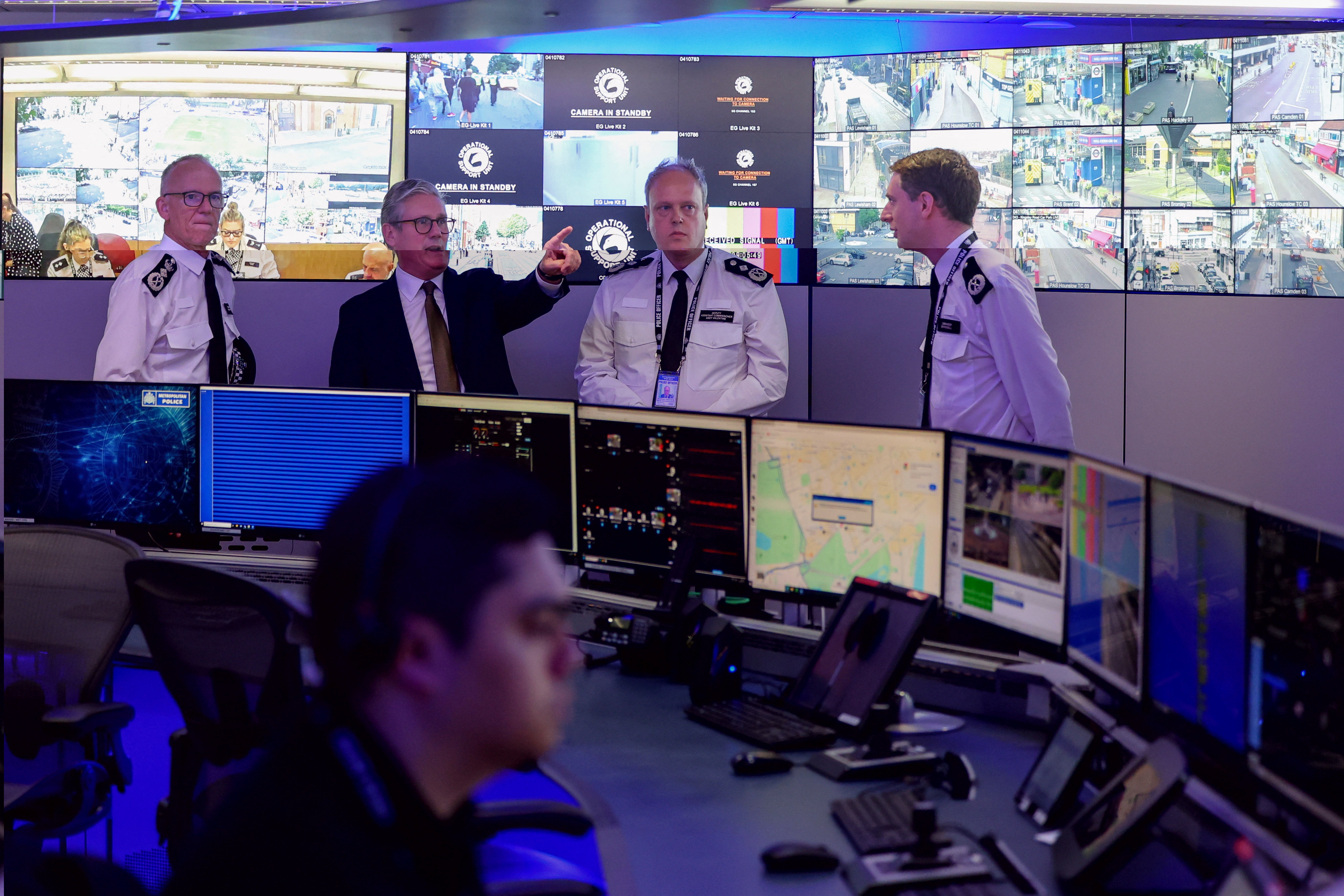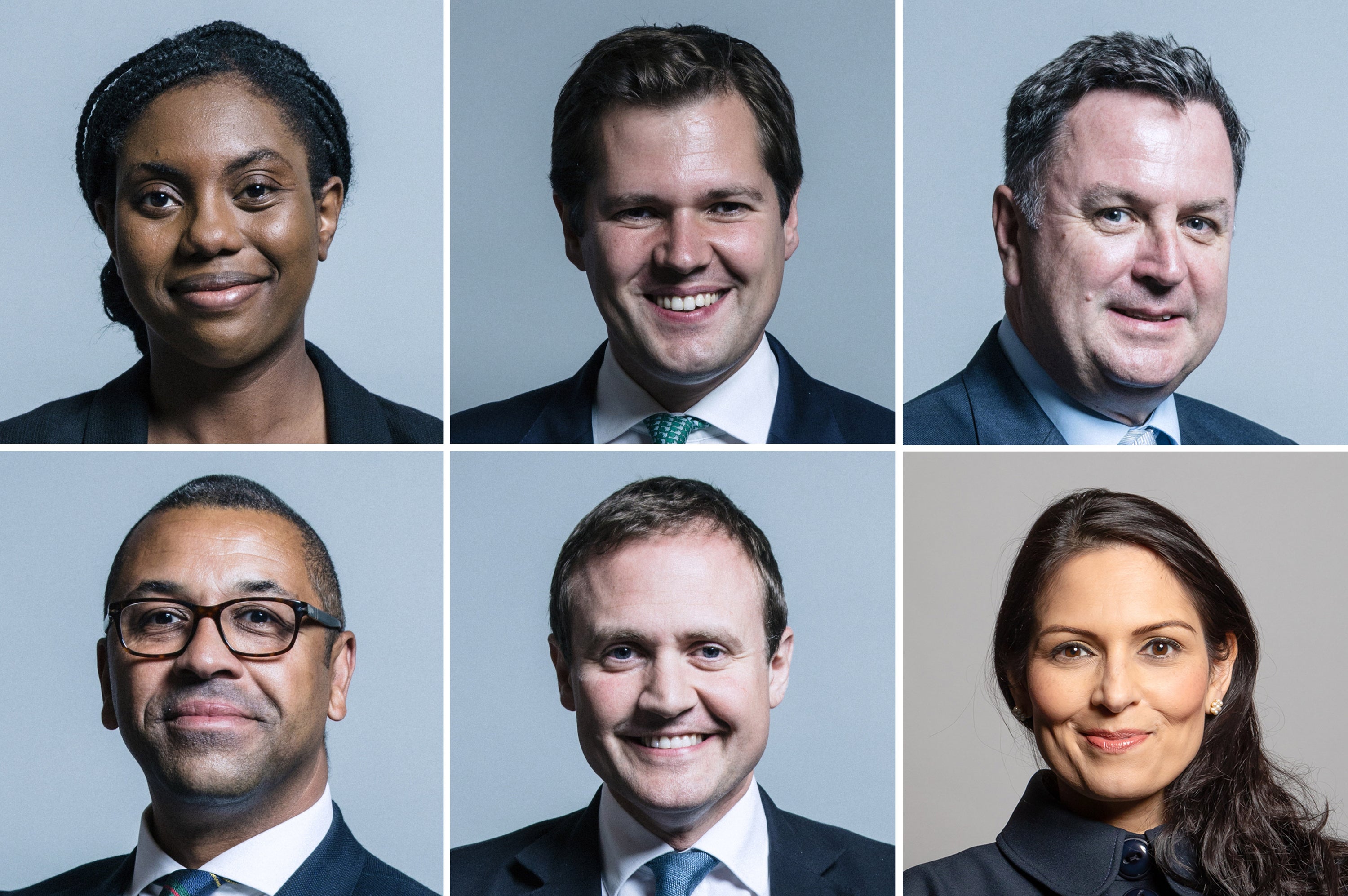Why is Starmer taking flak from Tory leadership candidates over the riots?
As would-be Conservative leaders line up to criticise the prime minister over his first big test in office, Sean O’Grady looks at their motives


As the hearings and sentencing of those involved or caught up in the far-right riots grind on through the courts, some of the contenders to be the next leader of the Conservative Party have been sharply critical of the prime minister’s handling of the crisis.
The latest to go on the offensive is Tom Tugendhat, a shadow cabinet member, who has accused Keir Starmer of a “failure of leadership”, saying that the prime minister “fell short” in the first test of his premiership. Tugendhat then extended his criticism to operational matters not normally intruded upon by politicians, suggesting that police officers had not acted “without fear or favour” during some of the counterdemonstrations.
What else have they been saying?
While Kemi Badenoch and Mel Stride have kept their own counsel, each of the other four candidates has directly criticised the prime minister. As well as the bald allegation of “failure”, Tugendhat, a former security minister, said that the unrest “could, and should, have been stopped earlier”. He argued that the lessons of the 2011 riots had not been applied, and that a high-level Cobra meeting should have been convened sooner, with more police deployed and the army used for “back-up office duties”. Starmer’s “standing army” of police was derided as “in truth a PR line, not a policy”.
Priti Patel said, similarly, that the government had been “breathtakingly complacent” in its initial response to the unrest. She also argued that parliament should be “recalled immediately”. Robert Jenrick chimed in, arguing that Starmer had “dithered and delayed”. James Cleverly, who as shadow home secretary has formal responsibility for this area, called for the government to be “much more proactive”, and expressed concern that the prime minister had been too slow in his response.
What are they up to?
Well, it is the job of the opposition to oppose, so in one sense they are doing their job. However, given the context, they would all like to be seen to be taking the political battle to Labour, and are offering a taste of how combative they would be, especially at the despatch box at Prime Minister’s Questions. Badenoch is the one they all need to make ground on, and the more trenchant the attack on Starmer, the better it will go down with fellow MPs and the grassroots.
Aren’t they breaking the usual consensus?
Apart from Badenoch and Stride, who have focused more on the underlying issues than the approach to the riots as such, it does feel that way. After the general election and the shock of defeat, for example, the actual leader of the opposition, Rishi Sunak, often expressed a wish for more constructive engagement and cross-party consensus in the national interest.

By the way, in February, Sunak made a high-profile intervention as PM during the pro-Palestine protests, declaring that he sensed “a growing consensus that mob rule is replacing democratic rule”. But he’s said nothing like that this time round. In Sunak’s absence – and with no comment from him about the civil disorder – his lieutenants have been playing a more political game.
Is it fair on Starmer?
It seems harsh, and his Tory opponents sound a bit “Captain Hindsight”, if the phrase may be borrowed. Starmer, who held the post of director of public prosecutions during the 2011 riots, placed great emphasis on the criminal justice response – swift arrests, prompt hearings, and exemplary sentencing. As the verdicts and tough custodial penalties were publicised, the urge to riot started to evaporate.
What does the public think?
Two things. Helpfully for Tugendhat, Patel, Jenrick et al, at least one opinion poll suggests some public concern around Starmer’s performance under pressure, albeit in the early stages of the unrest. With fieldwork taking place after the first tranche of disturbances, YouGov reported a week ago that some 49 per cent of respondents felt the prime minister was dealing with the disorder badly, as opposed to the 31 per cent of those surveyed who said he was managing it well.
On the other hand, it seems that no one much cares what any of the six candidates thinks about anything. The latest research by Ipsos has been described by the company as probably the most brutal polling for the Conservatives yet, revealing that most of the public don’t care who replaces Sunak. For what it’s worth, Cleverly narrowly leads, with 18 per cent believing he would do a good job, while Patel and Tugendhat are close behind on 17 per cent each. But Patel is far more divisive, with a marked tendency to turn off almost half of the electorate – and Badenoch is still ahead of them all among the membership.
They may take some comfort from the fact that when Starmer became Labour leader early in the pandemic, he too looked irrelevant and was largely ignored. Hope springs eternal.



Join our commenting forum
Join thought-provoking conversations, follow other Independent readers and see their replies
Comments